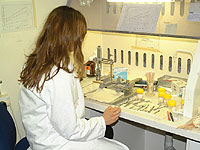|
||||||||||||||||||||||||||||||||||||||||||||
| Advanced Mathematics - 3986 | ||||||||||||||||||||||||||||||||||||||||||||

A four-year degree leading to the potential award of honours based on overall performance. The degree will incorporate a single major and a research project. The degree program divides into four groups covering discipline-specific technical content, research project, free electives and the general education components.
Whereas the development of depth of understanding in pure and applied areas of mathematics and practical skills in specific disciplines are essential, the degree will also focus on instilling a culture of research and enquiry through early induction into the research ethos and access to research groups and facilities. Program Objectives and Learning Outcomes To graduate mathematicians and Statisticians with both breadth and depth of mathematics, Statistics and scientific knowledge and professional skills
To develop the capacity for critical thinking and independent learning To provide training in the practice and management of research and instill a research ethos To endue general and science-specific graduate attributes To expose students to disciplines outside mathematics and science, and the social context of science Conditions for the Completion of the Advanced Mathematics Program
Study Plans Available in Advanced Mathematics
Applied Mathematics
High Performance Students Pure Mathematics Quantitative Risk Statistics Detail plan information (Table E and F) will be uploaded soon. Alternatively email Science Student Centre at sso@unsw.edu.au General Education Requirements Students in this program must satisfy the University's General Education requirements. For further information, please refer to General Education in the Table of Contents (see left hand side of this page).
Please refer to program 3972, for "Conditions for Completion of the Advanced Science and Advanced Mathematics programs".
For information regarding fees for UNSW programs, please refer to the following website: https://my.unsw.edu.au/student/fees/FeesMainPage.html
Note: Do not refer to the Area(s)of Specialisation below
|
||||||||||||||||||||||||||||||||||||||||||||


